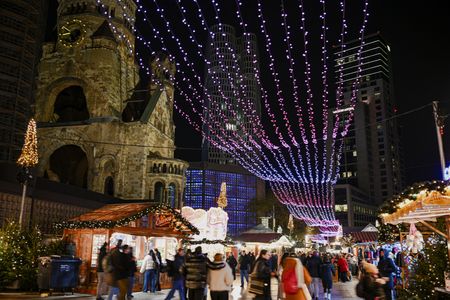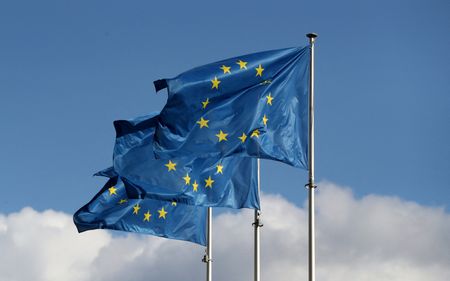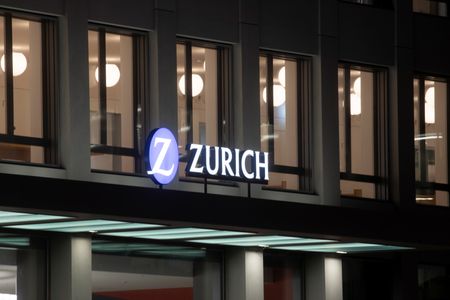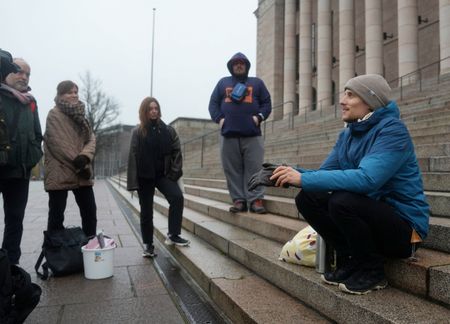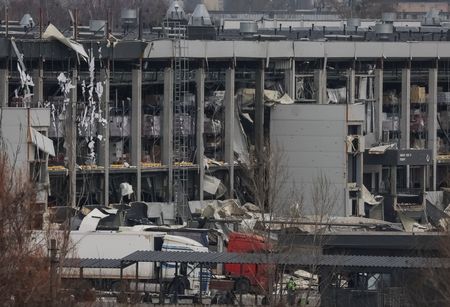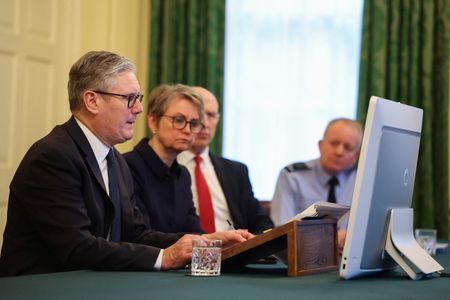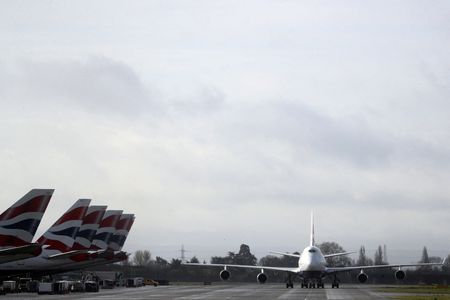By Friederike Heine
BERLIN (Reuters) -Germany’s Christmas markets, a major tourist draw for local economies, are grappling with unprecedented security costs following a series of attacks.
A nationwide survey by the Federal Association of City and Town Marketing, or BCSD, found that costs for public events, including Christmas markets, had jumped by an average of 44% over the past three years.
While security was ramped up after an Islamist rammed a hijacked truck into a Christmas market in central Berlin in 2016, a deadly attack in the eastern city of Magdeburg last December has again focused minds on enhanced safety measures at the centuries-old events as the season gets under way in Germany.
BARRIERS, CHECKPOINTS AND VIDEO SURVEILLANCE
Authorities said at the time of the Magdeburg attack that the suspect used emergency exit points to drive onto the grounds of the market, where he picked up speed and ploughed into the crowds, hitting more than 200 people in a three-minute attack. The suspect is still on trial.
A fatal car ramming attack occurred in Munich in February. A car was also driven into a crowd in the western German city of Mannheim in March.
“The requirements have become increasingly stringent,” said David Russ, the head of production at Berlin’s Gendarmenmarkt market, which has added large concrete barriers, checkpoints at entrances, video surveillance and trained security staff.
The added measures “give guests a feeling where they can say ‘OK, I can just let go of everything here – I feel safe’,” he said.
A visitor to the market from Berlin who gave her name as Chrystel said the barriers at the entrance had set her mind at ease.
The interior ministry has acknowledged the concerns. “Due to the expected high number of visitors, their mostly central locations, and open access, the Christmas markets taking place nationwide in various sizes pose a particular risk,” it was quoted by the Handelsblatt news outlet as saying.
CALLS FOR LARGER SUBSIDIES
Although towns and cities usually receive a subsidy from their respective budgets to support the cost of organising a Christmas market, smaller municipalities and private organisers often carry the costs themselves.
Local authorities have started calling for the 16 federal states to take on the financial burden, which they say constitutes counter-terrorism and falls outside their remit.
“We need nationwide, reliable rules … otherwise we will soon find ourselves without anyone willing to take on the ever-increasing responsibility for events and shoulder the financial burden,” said Gerold Leppa, head of the BCSD.
Chancellor Friedrich Merz said last week the federal government could not provide support as it was the responsibility of state police forces, but said he was following the debate.
“It weighs heavily on me that we can no longer hold Christmas markets even in smaller towns without a comprehensive security concept,” he was quoted by Bild as saying during a visit to Halle.
The German Association of Towns and Municipalities, which represents the interests of 10,000 local government bodies, said if there were no additional subsidies, “organisers may have little choice but to pass on the costs to visitors”.
Berlin’s Gendarmenmarkt market has started charging a 2-euro entrance fee.
“These 2 euros are also used to run the market, but also, of course, for the security issues,” Russ said. “We have four entrances, as you can see here. We have a real-time counting of people coming in, we have video surveillance.”
For the tourists, the Berlin market, with traders selling decorations and gifts and stalls laden with food and mulled wine, is everything they had hoped for.
“This is a really lovely Christmas market. Actually, we’ve never seen one as beautiful as this before,” said Josephine Huenterer, from the Netherlands.
(Reporting by Friederike Heine;Editing by Alison Williams)

